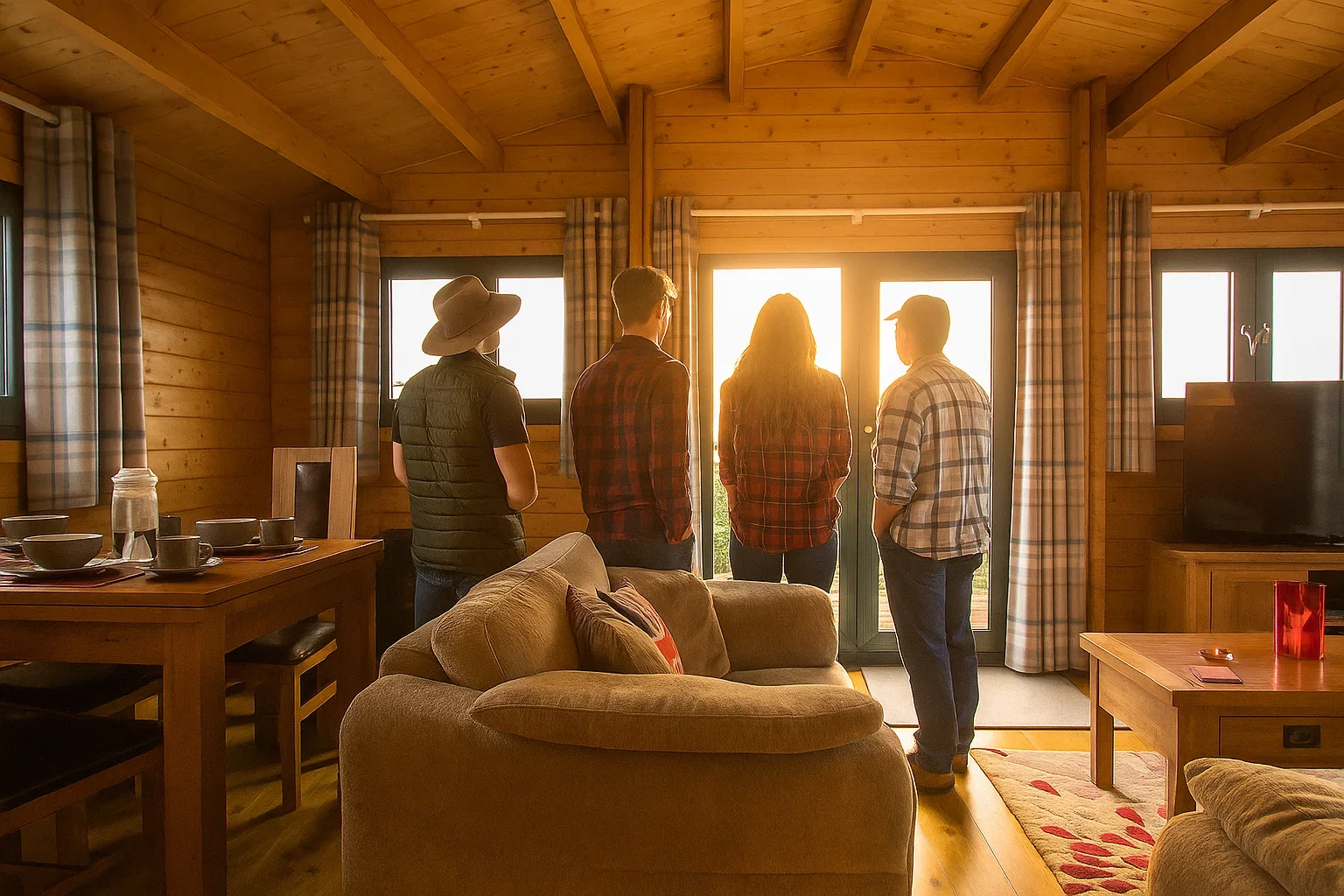The ROI of Housing Your Harvest Team On-Site
Time is Money in Agriculture
In farming, time is everything. Narrow harvest windows, unpredictable weather, and shifting market demands mean productivity hinges on every hour your team can give. One often-overlooked way to boost efficiency? On-site accommodation.
Providing seasonal workers with comfortable cabins directly on your land isn’t just a perk, it’s a strategic investment. The return comes in saved time, stronger retention, healthier teams, and more resilient harvests.
Here’s why housing your harvest team on-site pays off.
1. Time-Saving is Profit-Making
Every minute spent commuting is a minute lost in the field. Common problems farmers face include:
Delays caused by traffic or unreliable transport.
Late arrivals or early departures that cut into productive hours.
Breaks taken off-site due to lack of nearby facilities.
With on-site cabins, workers are ready to respond when the crops are. Rest breaks happen closer to the field, meaning more responsive, efficient days. It’s not about demanding longer shifts, it’s about getting the very best from the hours already worked. Over a harvest season, those minutes add up to saved crops and higher yield.
2. Reduce Turnover, Reduce Training Costs
Seasonal labour turnover is a real drain. Constantly retraining new recruits eats into time and productivity.
Workers housed in safe, warm, and well-equipped cabins are far more likely to return season after season. Familiar faces mean less time onboarding, stronger team dynamics, and better overall performance.
It’s not just about loyalty, it’s about protecting your investment in skilled labour.
3. Comfortable Workers Perform Better
Agricultural work is tough. Expecting staff to deliver their best while commuting long distances or resting in poor conditions is unrealistic.
Properly specified log cabin mobile homes provide:
Warm, insulated rooms with proper heating.
Comfortable beds and private spaces for recovery.
Shared kitchens and bathrooms for dignity and convenience.
Dedicated areas for drying wet clothes or relaxing after a shift.
The result is simple: better-rested, healthier workers with more focus and stamina in the field.
4. Meeting Legal & Ethical Standards
Farming is increasingly under the spotlight when it comes to worker welfare. Accommodation is a major part of this conversation.
Placing mobile homes on agricultural land always requires planning permission, but the good news is that applications for mobile homes are often treated more favourably than bricks-and-mortar builds. Why? Because mobile homes are not considered permanent development in the same way.
✔ Applications linked to seasonal work are more likely to be approved.
✔ Mobile homes must comply with the Caravan Sites Act 1968 (size, mobility, single-storey).
✔ Unlike residential dwellings, they are exempt from Building Regulations, reducing red tape.
Good accommodation isn’t just about compliance, it’s about reputation. Demonstrating you’re providing safe, suitable housing for staff reflects positively on your farm in the eyes of workers, partners, and regulators.
5. Future-Proofing Your Operation
Agriculture is dynamic. Your workforce needs today might look very different in five years. Cabins built to mobile spec offer flexibility:
Add new units as your team grows.
Repurpose cabins into break rooms, storage, or admin space.
Relocate units if your farm setup changes.
This adaptability ensures your investment serves the farm long into the future.
6. The Financial Payback
Let’s look at the ROI in real terms:
Time saved on commuting = more productive hours.
Higher yield from staff being on-site and responsive.
Lower turnover costs thanks to stronger retention.
Rental income: charging a fair rent offsets upfront costs and provides affordable housing for workers compared to off-site options.
Reduced VAT: mobile homes qualify for a 5% VAT rate, improving affordability.
Durability: cabins built with slow-grown timber outlast static caravans, reducing long-term replacement costs.
Most farms see the cost of installation offset within 2–3 seasons, making this one of the most practical investments you can make.
Conclusion: Build for the Season, Reap the Rewards
On-site cabins aren’t a luxury. They’re a tool for productivity, retention, and profitability. By providing your harvest team with better living conditions, you secure your farm’s most valuable resource: its people.
Ready to explore how cabins can deliver ROI for your farm?
Download our free AgriCabin Guide, covering:
Planning and permissions explained
Utilities and groundworks made simple
Pricing and configuration options
Real-life farm case studies
Give your team the comfort they deserve, and give your farm the return it needs.
Download Brochure
Planning Note:
Mobile homes built to the Caravan Sites Act 1968 always require full planning permission when sited on land not classified as Garden. However, because they are not classed as permanent development, applications are often viewed more favourably than for bricks-and-mortar buildings. Mobile homes are exempt from Building Regulations, but must still comply with the Act’s size and mobility requirements. Always check with your local planning authority before proceeding.

